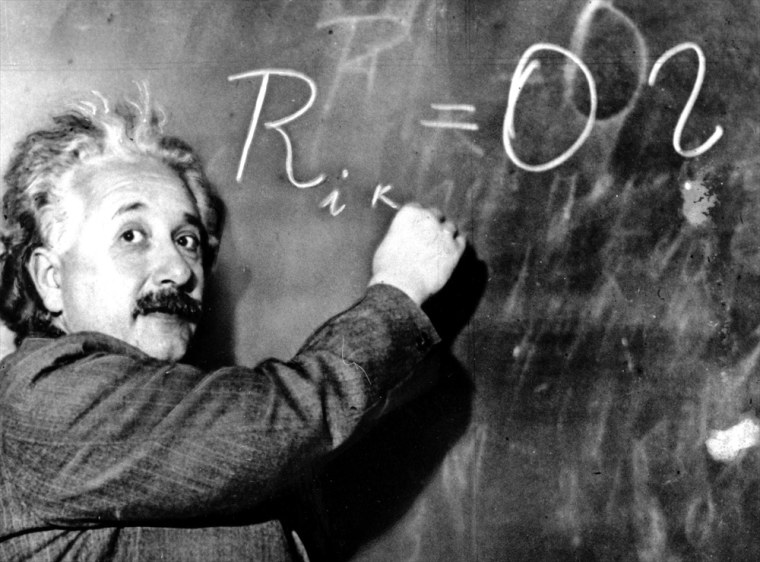Celebrating a native son who had to flee the Nazis, Germany opened festivities Wednesday marking the 100th anniversary of Albert Einstein’s theory of relativity and the 50th anniversary of his death.
The so-called “Einstein Year” of 2005 is being marked with tours, a scientific conference and a major exhibition about Einstein, whose theories about space, time and relativity revolutionized science and also helped make him a pop icon.
German Chancellor Gerhard Schroeder began the celebration at the German Historical Museum in Berlin, calling on his fellow Germans and scientists to embrace innovation and political debate as Einstein would.
“He revolutionized science and changed the world through his thinking. He has become a cult figure for the youth of the world through his moral incorruptibility,” Schroeder said. “And to the end, Einstein — who again and again set himself against the most evil anti-Semitic hatemongering — fought against the strengthening of the Nazis and for the defense of democracy.”
Social and scientific thinker
Einstein, who was Jewish, was born in Ulm, Germany in 1879. He left Germany one month before Adolf Hitler took power in 1933, never to return. From the beginning, he was a forceful critic of Hitler’s dictatorship. In a letter to a friend in 1936, he wrote, “The only good thing appears to be that Hitler in the awareness of his power will commit enough stupidities to bring the world against him.”
Einstein’s special theory of relativity says a large amount of energy could be released from a tiny amount of matter, as expressed in the equation E=mc2 (energy equals mass times the speed of light squared). The theory changed the face of physics, allowing scientists to make predictions about space and paving the way for nuclear power and the atomic bomb — deeply ironic, considering Einstein’s inclination to pacifism.
Although he didn’t work on the bomb, Einstein signed a crucial 1939 letter urging President Franklin Roosevelt to speed work on nuclear weapons, warning the Germans appeared to doing the same — an action he later said he regretted.
Worldwide cultural icon
His scientific legacy prompted Time magazine to name him its Person of the 20th Century, and his musings on science, war, peace and God helped make him a name known worldwide. His image, marked by a mustache and a mass of unkempt hair, adorned coffee mugs and dorm room posters. One photograph, showing Einstein with his tongue sticking out, highlighted the physicist's playful side.
Einstein died in Princeton, N.J., on April 18, 1955.
Germans have taken his iconic status as a chance to ponder their country’s scientific innovations and wonder how to keep their brightest people from leaving.
Germany has long prided itself on being the homeland of some of the world’s greatest philosophers and scientists, but it has agonized in recent years about the strength of its education system and the “brain drain” that draws its scientists to elite universities in the United States.
“Einstein finally stands for much that this country has badly needed: the desire to puzzle over and discover things,” the Munich-based Sueddeutsche Zeitung daily commented. “The cult of Einstein could have positive effects. The humorous physicist would certainly not be displeased if he fired up research in Germany 50 years after his death.”
